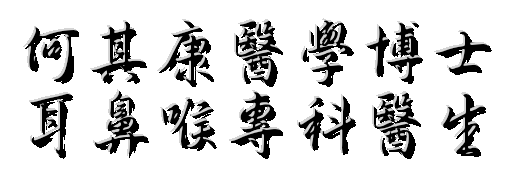ENDOSCOPIC SINUS AND NASAL SURGERY: POST OPERATIVE INSTRUCTIONS
NASAL CARE -
1. Use nasal saline spray (salinex, Ayr, or Ocean Spray) available over the counter in your drug store. Sniff and spray 4 puffs into each nostril every hour while you are awake until you are instructed otherwise. This will make cleaning your nose during office visits much easier by reducing crusting.
2. Irrigate your nose twice a day. Easiest way is to fill a glass with warm tap water (boil first), add one teaspoon of salt (without iodine). If it burns, increase or decrease, salt content. You can also add a little baking soda. Bend your head over the sink. Draw up the water in the bulb syringe (available over the counter in your drug store) lean over the sink and squirt water firmly into your right nostril toward the throat, while sniffing inward. The water should drain back out of the nostril- or even better- out of the mouth. Use half of the glass on the right nasal cavity and half on the left side. Do this twice a day. Intially, crusts and blood will be flushed from your nostril. This will speed up healing. The alternative is to use the over the counter sinus rinse system.
3. You may be given a prescription for antibiotics. If you develop diarrhea or a rash from the antibiotics, OR IF YOU THINK YOU ARE ALLERGIC TO THEM, CALL THE OFFICE. You will need to be seen weekly after your operation to examine and clean your nasal cavity and sinuses. This is very important to ensure good healing. Do not plan any lengthy trips for 4 weeks after surgery.
ACTIVITY:
You should rest the day of the surgery to recover from the anesthesia. Sleep on your back with your head raised on two pillows. This will help decrease swelling and may make you more comfortable. Light activity is recommended the first 2-3 days after surgery. Thereafter, you may slowly increase activity as tolerated, but avoid bending, straining, strenuous activity or exercise for 2 weeks. You can return to work when you are taking minimal pain medication.
DIET:
Try to start with something thin and light, like clear liquids and soup. You may have some nausea from the anesthesia or pain medications. If you do not have any nausea, you may slowly increase this to a general diet.
PAIN:
Sinus surgery is not particularly painful. Most patients will feel a headache, sinus pressure and congestion. You may experience some sore throat due to anesthesia, but this usually resolves in a few days. Take only the pain medication that was prescribed. PLEASE DO NOT TAKE ASPIRIN, BUFFERIN, ADVIL, MOTRIN, ALEVE, IBUPROFEN AS THEY WILL THIN YOUR BLOOD AND INCREASE RISK OF BLEEDING! Tylenol is acceptable.
BLEEDING:
Expect some light to moderate bleeding for a few days. The gauze taped under your nose will help absorb this drainage. Change the gauze when it soaks through with blood. You may need to change this gauze a dozen times the first day and several times the second day. Do not remove any other nasal dressings. If your nose continues with heavy bleeding or if there is sudden brisk bleeding, call your doctor.
NASAL PACKING:
Your doctor may use some nasal packing in your nose/sinus to improve healing. This may cause significant nasal congestion until the packing is removed. Do not be discouraged if you cannot breath through your nose at first. It typically takes 2 to 3 weeks before the inflammation and swelling inside the nose to have subsided enough to provide good nasal airway.
NOSE BLOWING:
Try not to blow your nose; instead spit out any drainage into a tissue. Try not to swallow this because it may make you nauseated. If you need to sneeze, do your best to keep your mouth open.
PRECAUTIONS/ WHAT TO LOOK FOR:
Call the office for a fever greater than 101 degrees orally. Look for clear watery drainage from your nose. Observe any changes in your vision or eye swelling. Report these findings as soon as possible. Notify us of any worsening headache or neck stiffness.
REMEMBER: Your body is undergoing a gradual healing process. Soon you will be feeling better than ever!



